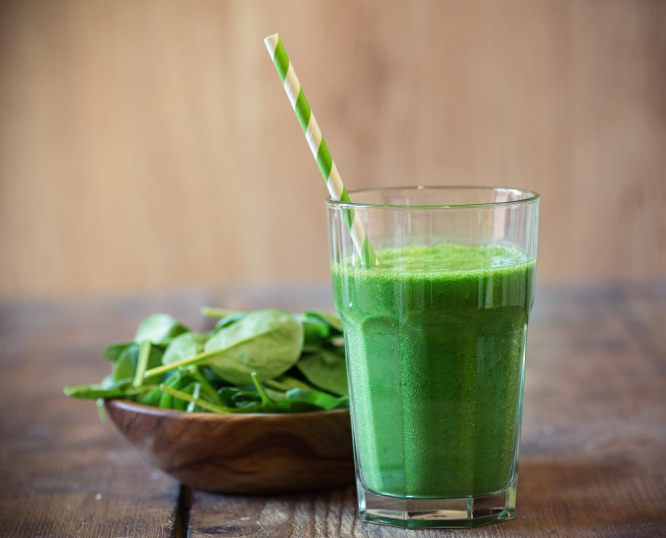
High blood pressure is a condition that occurs when the force of blood running through your blood vessels is too high. It puts people at risk for serious cardiovascular health conditions, according to the American Stroke Association. Having natural ways to manage and reduce high blood pressure is key.
There are many common dietary and lifestyle recommendations that people follow to naturally reduce blood pressure, including eating a low-sodium diet, quitting smoking, and exercising. But one intervention that may come as a surprise is eating blue-green algae called spirulina.
Spirulina is a natural algae that can be obtained in supplement form or through products like super greens powder – a greens powder that not only contains spirulina, but also provides a healthy dose of other superfoods like organic alfalfa grass, organic kale, and organic wheatgrass.
What are the benefits of spirulina?
Spirulina is a good source of plant-based protein. One tablespoon also provides over 10 per cent of the recommended daily intake of beneficial nutrients like vitamin B1 (thiamine), vitamin B2 (riboflavin), copper, and iron.
For those following a vegan lifestyle, the iron in spirulina can be especially beneficial, since those following a plant-based diet might be more likely to be iron deficient.
Spirulina has been shown to exhibit powerful antioxidant properties, have anti-cancer properties, and aid in blood sugar control, among other natural health benefits.
All of these features and benefits classify spirulina as an excellent addition to a healthy lifestyle. Specifically, including spirulina into one’s diet has been shown to support healthy blood pressure.
Can spirulina help lower blood pressure?
People are motivated to reduce their blood pressure in a healthy way, because having high blood pressure puts people at risk for many serious diseases, including stroke and kidney disease. There are many steps people can take to support efforts to lower high blood pressure according to experts. Some key measures include:
Including spirulina into your daily habits may help support healthy blood pressure according to some data. The thought is that it lowers blood pressure by relaxing the arteries.
Spirulina specifically has been shown to induce an increase in the synthesis and release of nitric oxide, a molecule that relaxes the inner muscles of blood vessels, causing the vessels to widen. Thus, nitric oxide can increase blood flow and reduce blood pressure.
Data suggests that consistent spirulina consumption plays a role in reducing blood pressure, as well as other positive outcomes like reduced LDL cholesterol. Data has been evaluated in both human and animal studies with similar positive results.
In one study published in the Lipids in Health and Disease journal, 36 people took spirulina daily for 6 weeks. When comparing blood pressure before the supplementation vs. after the 6 weeks intervention, researchers found that blood pressure in both male and female participants improved. Specifically, it reduced systolic and diastolic blood pressure.
These findings about the benefits of spirulina are important because finding a cost-effective solution for high blood pressure that is safe and natural could help keep people healthy without turning to prescription medication.
In addition to taking in spirulina, here are some other ways to maintain healthy blood pressure:
- Increasing physical activity
- Eating more potassium-rich foods
- Cutting back on sodium-rich foods
- Quitting smoking
- Managing stress
- Avoiding processed foods
- Maintaining a healthy weight
- Cutting back on caffeine intake

How to include spirulina in your diet?
Spirulina is an appealing ingredient for many reasons. It mixes well, adds gorgeous and unique colour to food and drinks, and is easy to obtain.
Spirulina often comes in a pill or a powder form. The powder is sometimes sold individually or is available in combination with other beneficial ingredients like super greens.
Spirulina powder is a wonderful addition to smoothies, oatmeal, and desserts. Spirulina can also be used as a natural food colouring instead of using artificially coloured ingredients.
How to Pick The Best Spirulina
Spirulina can come with a combination of additives, preservatives, and colorings, or it can be sold as pure spirulina.
When choosing a spirulina supplement or product, make sure that it does not contain added ingredients like fillers. Additionally, organic is often a better choice to help reduce your risk of ingesting spirulina that has been exposed to controversial fertilizers.
Key Takeaway
Spirulina is an algae that offers many health benefits naturally, including possibly reducing blood pressure.
As a registered dietitian, I support the use of spirulina on a consistent basis in order to add a boost of nutrition to people’s diets while also possibly helping support cardiovascular health.
Making dietary and lifestyle changes can quite possibly help people avoid needing to take medication and can help them manage their health condition in a healthy and natural way.
As long as consuming spirulina is an acceptable practice to your personal health care provider, including spirulina into a healthy lifestyle is a wise choice that is worth exploring.
Author’s Bio
Lauren Manaker is an award-winning registered dietitian, book author, and personal trainer. She is passionate about helping people manage their health conditions through dietary changes and enjoys shedding light on research that highlights the use of certain interesting supplements.
